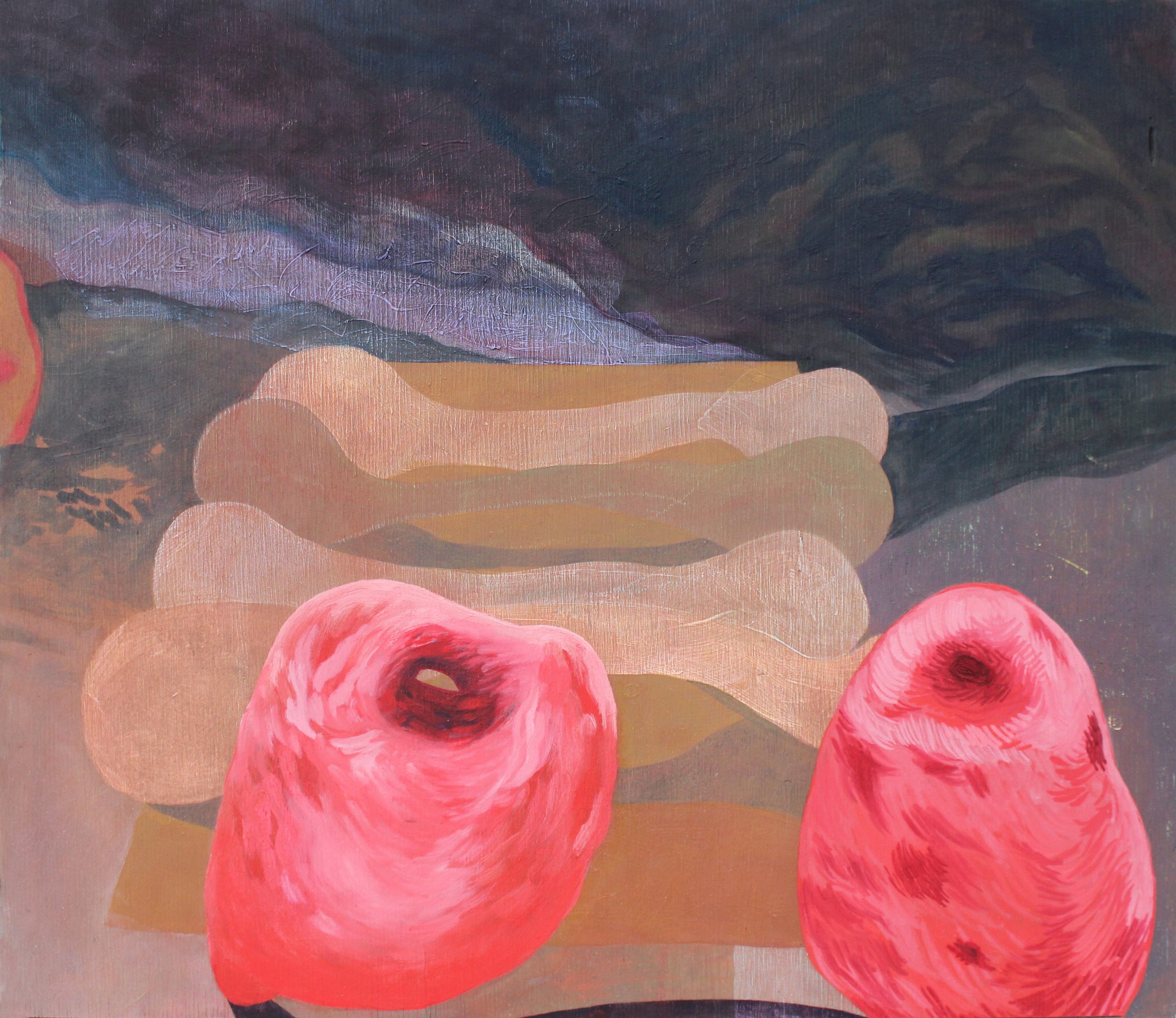By Mauri Pollard
She put her fingers to her rib cage (which jutted out, her skin pulled taught against the brittle bones in the way it had before) and then wrapped them around her frail wrist (like her husband often does to measure her health and caloric intake and how much he should worry) and she thought about her time at the treatment center (which she often thought of as fat prison, not because the people there were fat, but because the wardens inside were paid to make their prisoners fat) and how eating was the cruelest form of torture and on the first day the soup, which started off creamy, turned into buttery water and the biscuit was stale and none of the girls wanted to talk about God, but she had needed God so badly; how some of the girls and women (the oldest, she guessed, being 60 or 70) looked like skeletons—like death stumbling around—and some were caving in on themselves and some looked exhausted from breathing and others were trailing feeding tubes connected through their nose and down into their stomach because they couldn’t force themselves to eat; how almost nothing was allowed because almost anything could be used for self-harm; how dehumanizing it was to strip down to nothingness every morning and put on a medical gown just to have your future determined by how high you could get the number on the scale or at the other end of a blood pressure pump or an EKG machine or on the test results of blood drawn every week sitting at a folding table in the middle of a room where girls play billiards or read by the fire or write in their journals about wanting to starve themselves so much that they become simply skin slung around bone and are forced to take a feeding tube to survive, or where some girls are just trying to sleep off reality; how sometimes girls came in and then disappeared and others would ask “where’d she go” and someone would say, “she stepped up” (meaning up to the in-patient unit) and heads would nod in understanding and fear; how one girl came in and sat in front of her plate shaking her leg viciously and staring off into black matter and not touching her food, and the next day she didn’t come back and it became known that she had been hospitalized instead; how girls used profanity in unprofound ways and stuffed food down their pants so they didn’t have to eat (because they couldn’t put it down their shirts because of the ritual post-meal bra checks); how the care-techs watched every move she made in the cafeteria and scolded her for putting her hands under the table or eating pizza with a fork or saying that her brownie was undercooked (because that was “food talk”); how the dietitian didn’t listen to her when she said the food was too much and that it was making her sick—physically sick—and that she didn’t like hamburgers or cheeseburgers or kettle-cooked potato chips; how she felt trapped like a puppet doll on strings with no real right to choose for herself, or even want anything for herself, because everyone claimed she was there out of love, and naturally she wasn’t allowed to claim that she loved herself more than any of them did— and it’s all of these things that she thinks of as she notices the pain in her heart when it beats deep within her chest and her knee joints ache because she can’t not exercise every morning at five o’clock and when she looks into her full pantry and then closes it and chooses not to make anything for dinner and she feels herself slipping.



